[Abhorsen 03a] - Across the Wall Read online
Page 9
The creature slowly paced toward him. Nick lifted the wreath and made ready to throw or swing it over the creature’s head. But it didn’t attack or increase its pace. It walked up close and bent its long neck down.
Nick didn’t take his eyes off it for even a microsecond. As soon as he was sure of his aim, he tossed the wreath over the creature’s head. The chain settled on its shoulders, the yellow and red flowers taking on a bluish cast from the crackling sparks that jetted out from the creature’s hide.
“Let us talk and make truce, as the day’s eye bids me do,” a chill, sharp voice said directly into Nick’s mind, or so it felt. His ears heard nothing but the wind flutes and the jangle of cans tied to the wire. “We have no quarrel, you and I.”
“We do,” said Nick. “You have slain many of my people. You would slay more.”
The creature did not move, but Nick felt the mental equivalent of a snort of disbelief.
“These pale, insipid things? The blood of a great one moves in you, more than in any of the inheritors that I have drunk from before. Come, shed your transient flesh and travel with me back to our own land, beyond this prison wall.”
Nick didn’t answer, for he was suddenly confused. Part of him felt that he could leave his body and go with this creature, which had somehow suddenly become beautiful and alluring in his eyes. He felt he had the power to shuck his skin and become something else, something fierce and powerful and strange. He could fly over the Wall and go wherever he wanted, do whatever he wanted.
Against that yearning to be untrammeled and free was another set of sensations and desires. He did want to change, that was true, but he also wanted to continue to be himself. To be a man, to find out where he fitted in among people, specifically the people of the Old Kingdom, for he knew he no longer could be content in Ancelstierre. He wanted to see his friend Sam again, and he wanted to talk to Lirael….
“Come,” said the creature again. “We must be away before any of Astarael’s get come upon us. Share with me a little of your blood, so that I may cross this cursed Wall without scathe.”
“Astarael’s get?” asked Nick. “The Abhorsens?”
“Call them what you will,” said the creature. “One comes, but not soon. I feel it, through the bones of the earth beneath my feet. Let me drink, just a little.”
“Just a little…” mused Nick. “Do you fear to drink more?”
“I fear,” said the creature, bowing its head still lower.
“Who would not fear the power of the Nine Bright Shiners, highest of the high?”
“What if I do not let you drink, and I do not choose to leave this flesh?”
“Your will is yours alone,” said the creature. “I shall go back and reap a harvest among those who bear the Charter, weak and prisoned remnant of my kin of long ago.”
“Drink then,” said Nick. He cut the bandage at his wrist and, wincing at the pain, sliced open the wound Dorrance had made. Blood welled up immediately.
The creature leaned forward, and Nick turned his wrist so the blood fell into its open mouth, each drop sizzling as it met the thing’s internal fires. A dozen drops fell; then Nick took his dagger again and cut more deeply. Blood flowed more freely, splashing over the creature’s mouth.
“Enough!” said the voice in his mind. But Nick did not withdraw his hand, and the creature did not move. “Enough!”
Nick held his hand closer to the creature’s mouth, sparks enveloping his fingers, to be met by golden flames, blue and gold twirling and wrestling, as if Charter Magic visibly sought dominance over Free Magic.
“Enough!” screamed the silent voice in Nick’s head, driving out all other thoughts and senses, so that he became blind and dumb and couldn’t feel anything, not even the rapid stammer of his own heartbeat. “Enough! Enough! Enough! ”
It was too much for Nick’s weakened body to bear. He faltered, his hand wavering. As the blood missed the creature’s mouth, it staggered, too, and fell to one side. Nick fell also, away from it, and the voice inside his head gave way to blessed silence.
His vision returned a few seconds later, and his hearing. He lay on his back, looking up at the sky. The moon was just about to set in the west, but it was like no moonset he had ever seen, for the right corner of it was diagonally cut off by the Wall.
Nick stared at the bisected moon and thought that he should get up and see if the creature was moving, if it was going to go and attack the soldiers in order to dilute his blood once again. He should bandage his wrist, too, he knew, for he could feel the blood still dripping down his fingers.
But he couldn’t get up. Whether it was blood loss or simply exhaustion from everything he’d been through, or the effects of the icy voice on his brain, he was as limp and helpless as a rag doll.
I’ll gather my strength, he thought, closing his eyes. I’ll get up in a minute. Just a minute…
Something warm landed on his chest. Nick forced his eyes to open just enough to look out. The moon was much lower, now looking like a badly cut slice of pumpkin pie.
His chest got even warmer, and with the warmth, Nick felt just a tiny fraction stronger. He opened his eyes properly and managed to raise his head an inch off the ground.
A coiled spiral made up of hundreds of Charter Marks was slowly boring its way into his chest, like some kind of celestial, star-wrought drill, all shining silver and gold. As each Mark went in, Nick felt strength return to more far-flung parts of his body. His arms twitched, and he raised them too, and saw a nice, clean, Army-issue bandage around his wrist. Then he regained sensation in his legs and lifted them up, to see his carpet slippers had been replaced with more bandages.
“Can you hear me?” asked a soft voice, just out of sight. A woman’s voice, familiar to Nick, though he couldn’t place it for a second.
He turned his head. He was still lying near the Wall, where he’d fallen. The creature was still lying there, too, a few steps away. Between them, a young woman knelt over Nick. A young woman wearing an armored coat of laminated plates, and over it a surcoat with the golden stars of the Clayr quartered with the silver keys of the Abhorsen.
“Yes,” whispered Nick. He smiled and said, “Lirael.”
Lirael didn’t smile back. She brushed her black hair back from her face with a golden-gloved hand, and said, “The spells are working strangely on you, but they are working. I’d best deal with the Hrule.”
“The creature?”
Lirael nodded.
“Didn’t I kill it? I thought my blood might poison it….”
“It has sated it,” said Lirael. “And made it much more powerful, when it can digest it.”
“You’d better kill it first, then.”
“It can’t be killed,” said Lirael. But she picked up a very odd-looking spear, a simple shaft of wood that was topped with a fresh-picked thistle head, and stepped over to the creature. “Nothing of stone or metal can pierce its flesh. But a thistle will return it to the earth, for a time.”
She lifted the spear high above her head and drove it down with all her strength into the creature’s chest. Surprisingly, the thistle didn’t break on the hide that had turned back bullets; it cut through as easily as a hand through water. The spear quivered there for a moment; then it burst, shaft and point together, like a mushroom spore. The dust fell on the creature, and where it fell, the flesh melted away, soaking into the ground. Within seconds there was nothing left, not even the glow of the violet eyes.
“How did you know to bring a thistle?” Nick asked, and then cursed himself for sounding so stupid. And for looking so pathetic. He raised his head again and tried to roll over, but Lirael quickly knelt and gently pushed him back down.
“I didn’t. I arrived an hour ago, in answer to a rather confused message from the Magistrix at Wyverley. I expected merely to cross here, not to find one of the rarest of Free Magic creatures. And…and you. I bound your wounds and put some healing charms upon you, and then I went to find a thistle.”
“I’m gl
ad it was you.”
“It’s lucky I read a lot of bestiaries when I was younger,” said Lirael, who wouldn’t look him in the eye. “I’m not sure even Sabriel would know about the peculiar nature of the Hrule. Well, I’d best be on my way. There are stretcher bearers waiting to come over to take you in. I think you’ll be all right now. There’s no lasting damage. Nothing from the Hrule, I mean. No new lasting effects, that is…. I really do have to get going. Apparently there’s some Dead thing or other farther south—the message wasn’t clear….”
“That was the creature,” said Nick. “I sent a message to the Magistrix. I followed the creature all the way here from Dorrance Hall.”
“Then I can go back to the Guards who escorted me here,” Lirael said, but she made no move to go, just nervously parted her hair again with her golden-gloved hand. “They won’t have started back for Barhedrin yet. That’s where I left my Paperwing. I can fly by myself now. I mean, I’m still—”
“I don’t want to go back to Ancelstierre,” Nick burst out. He tried to sit up and this time succeeded, Lirael reaching out to help him and then letting go as if he were red-hot. “I want to come to the Old Kingdom.”
“But you didn’t come before,” said Lirael. “When we left and Sabriel said you should because of what…because of what had happened to you. I wondered…that is, Sam thought later, perhaps you didn’t want to…that is, you needed to stay in Ancelstierre for some person, I mean reason—”
“No,” said Nick. “There is nothing for me in Ancelstierre. I was afraid, that’s all.”
“Afraid?” asked Lirael. “Afraid of what?”
“I don’t know,” said Nick. He smiled again. “Can you give me a hand to get up? Oh, your hand! Sam really did make a new one for you!”
Lirael flexed her golden, Charter-spelled hand, opening and closing the fingers to show Nick that it was just as good as one of flesh and bone, before she gingerly offered both her hands to him.
“I’ve had it for only a week,” she said shyly, looking down as Nick stood not very steadily beside her. “And I don’t think it will work very far south of here. Sam really is a most useful nephew. Do you think you can walk?”
“If you help me,” said Nick.
INTRODUCTION TO UNDER THE LAKE
For someone who doesn’t like the Arthurian mythos, I am in the odd position of having written two “Arthurian” stories (the other one is “Heart’s Desire,” also in this collection). At least, I always think I’m not very fond of the whole Arthur thing, believing there are already too many stories and books that have mined the canon. But I love T. H. White’s The Once and Future King. I love Mary Stewart’s The Hollow Hills and The Crystal Cave (while not being partial to the two later sequels). I like the Arthurian elements in Susan Cooper’s The Dark Is Rising sequence. I would especially love to see again a television cartoon series from my childhood called King Arthur and the Square Knights of the Round Table. I know there are many other fine Arthurian or Arthurian-influenced books.
So I must not have a problem with Arthurian legend as such. My dissatisfaction probably lies in the way that the legends are used over and over again in the same way: the same stories told with little or no variation of character, plot, theme, or imagery.
The Lady of the Lake is one example of a clichéd character. How many times has she appeared as a beautiful woman, rising up out of the water to hand over Excalibur and help out the forces of good? Not to mention being dressed in silken samite.
Finding something new in an Arthurian character was the first thing I thought about when I was asked to write a story for an Arthurian-themed collection (after writhing about in horror, that is, and initially declining the invitation). Several months later, as the deadline approached, I started thinking about the Lady of the Lake. What would it be like living way down deep? Why would she choose to live there? What if she wasn’t actually a lady? Or, better still, not even human? And why would she help Arthur? What if she wasn’t good at all? What if she was a real monster, like a very smart psychopath?
The story came from there. The anthology I wrote it for never proceeded, adding insult to injury. I’d written an Arthurian story against my better judgment, and all for nothing. But stories share a characteristic with humans, in that they often get second, third, or even more chances. For “Under the Lake,” that came with publication in The Magazine of Fantasy & Science Fiction, and I was on the record as having committed Arthuriana.
UNDER THE LAKE
merlin has come again, down to where the light has gone and there is only darkness. Darkness and pressure, here where the water is as cold and hard as steel. He is bright himself, so bright that he hurts my eyes and I must lid them and turn away. Merlin uses that brightness, knowing that I cannot bear it, nor bear him seeing the creature I have become.
That is his strength, and it is the reason I will ultimately give him what he wants. For Merlin has power, and only he can give me what I need. He knows that, but as in any negotiation, he does not know at which point he will win. For I have two things that he seeks, and he has the price of only one.
I think he will choose Excalibur, for even he finds it difficult to think down here, under the lake. We can both see the strands of time that unravel from this choice, but I do not think Merlin sees as far as I in this darkness. He will choose the sword for his Arthur, when he could have the Grail.
I admit the sword seems more readily useful. With the scabbard, of course. But Merlin’s sight does not see behind, only forward, and what he has learned of the sword is only a small part of the story.
If he chose to be less blinding, I might tell him more. But the light is cruel, and I do not care to prolong our conversation. I will merely cast my own mind back, while he talks. It is as effective a means as any to avoid the spell he weaves so cleverly behind his words. Only Merlin would seek to gull me so, even though he should know better. Let him talk, and I will send his spell back. Back into time, when I walked under the sun, in the land that was called Lyonnesse.
Back into time, when the barbarians first landed on Lyonnesse’s sweet shores, and the people came to me, begging for a weapon that would save them. They had no fear of me in those days, for I had long held a woman’s shape, and I had never broken the agreement I made with their ancestors long ago. Not that they ever sought me out in times of peace and plenty, for they also remembered that I did nothing without exacting a price.
As I did when they asked me to make a sword, a sword that could make a hero out of a husbandman, a warrior of an aleswiller, a savior from a swineherd. A sword that would give its wielder the strength of the snow-fed river Fleer, the speed of the swifts that flew around my hill, and the endurance of the great stone that sat above my hidden halls.
They were afraid of the barbarians, so they paid the price. A hundred maidens who came to my cold stone door, thinking they would live to serve me in some palace of arching caverns underearth. But it was their lives I wanted, not their service. It was their years I supped upon to feed my own, and their blood I used to quench the sword. I still thought of humans as I thought of other animals then, and felt nothing for their tears and cries. I did not realize that as I bound the power of river, swifts, and stone into the metal, I also filled the sword with sorrow and the despair of death.
They called the sword Excalibur, and it seemed everything they had asked. It took many months before they discovered it was both more and less. It was used by several men against the barbarians and delivered great victories. But in every battle the wielder was struck with a battle madness, a melancholy that would drive him alone into the midst of the enemy. All would be strong and swift and untiring, but eventually they would always be struck down by weight of numbers, or number of wounds.
The people came to me again, and demanded that I mend the madness the sword brought, or make the wielder impossible to wound, so the sword could be used to its full effect. They argued that I had not fulfilled the bargain and would pay no more.
But I sat silent in my hill, the barbarians still came in their thousands, and there were few who dared to wield Excalibur, knowing that they would surely die.
So they brought the two hundred youths I had demanded. Some even came gladly, thinking they would meet their sweet-hearts who had gone before. This time I was more careful, taking their futures from them without warning, so there was no time for pain, despair, or sadness. From their hair I wove the scabbard that would give the wearer a hundred lives between dawn of one day and dawn the next.
I knew nothing of human love then, or I would have demanded still younger boys, who had no knowledge of the girls who came to my hill the year before. The scabbard did make the bearer proof against a multiplicity of wounds, but it also called to the sword and held it like a lover, refusing to let go. Only a man of great will could draw the sword, or a sorcerer, and there were few of those in Lyonnesse, for I disliked their kind. Many a would-be hero died with Excalibur still sheathed upon his belt. Even a hundred lives is not enough against a hundred hundred wounds.
Each time, the sword and scabbard came back to me, drawn to the place of their making. Each time I returned them to the good folk of Lyonnesse, as they continued their largely losing war against the barbarians. Not that I cared who won one way or another, save for tidiness and a certain sense of tradition.
Many people came to me in those times of war, foolishly ignoring the pact that spoke of the days and seasons when I would listen and spare their lives. Consuming them, I learned more of humanity, and more of the magic that lurked within their brief lives. It became a study for me, and I began to walk at night, learning in the only way I knew. Soon, it was mostly barbarians I learned from, for the local folk resumed the practice of binding rowan twigs in their hair, and they remembered not to walk in moonlight. Once again children were given small silver coins to wear as earrings. Some nights I gathered many blood-dappled coins but garnered neither lives nor knowledge.

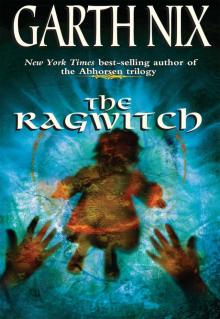 The Ragwitch
The Ragwitch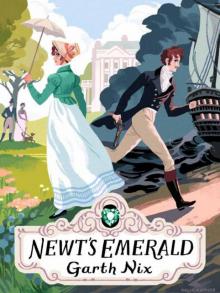 Newt's Emerald
Newt's Emerald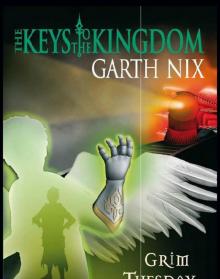 Grim Tuesday
Grim Tuesday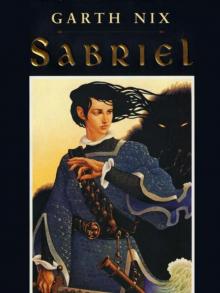 Sabriel
Sabriel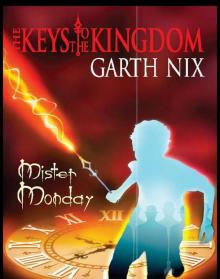 Mister Monday
Mister Monday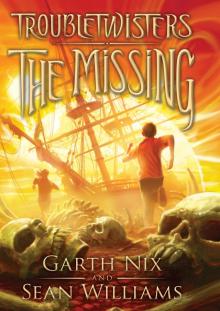 The Missing
The Missing The Fall
The Fall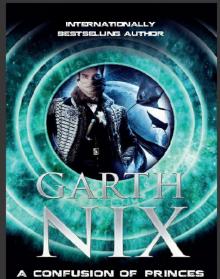 A Confusion of Princes
A Confusion of Princes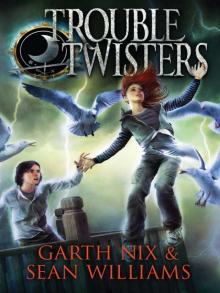 Troubletwisters
Troubletwisters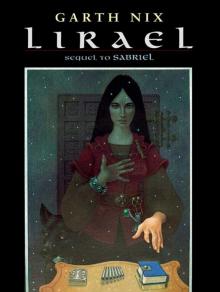 Lirael
Lirael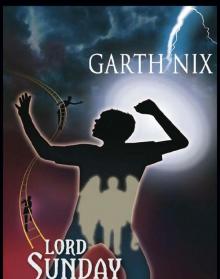 Lord Sunday
Lord Sunday Clariel
Clariel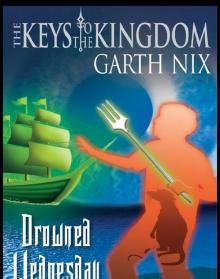 Drowned Wednesday
Drowned Wednesday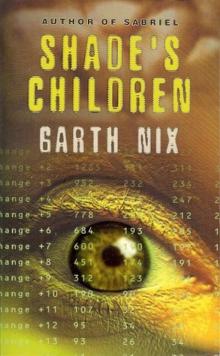 Shade's Children
Shade's Children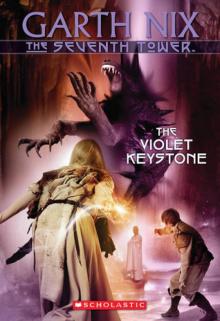 The Violet Keystone
The Violet Keystone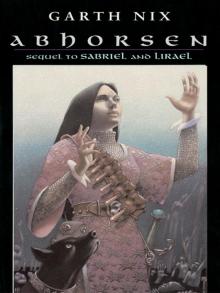 Abhorsen
Abhorsen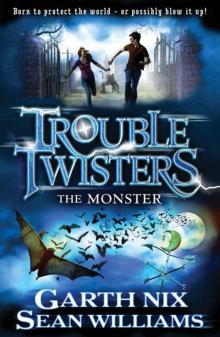 The Monster
The Monster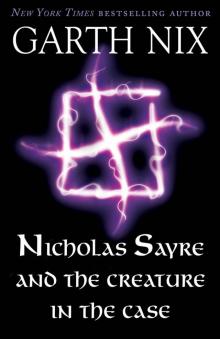 The Creature in the Case
The Creature in the Case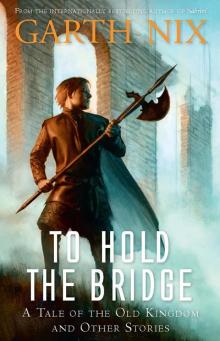 To Hold the Bridge
To Hold the Bridge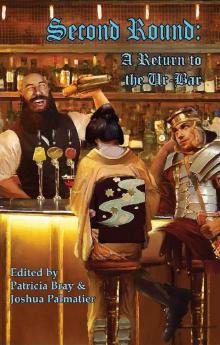 Second Round: A Return to the Ur-Bar
Second Round: A Return to the Ur-Bar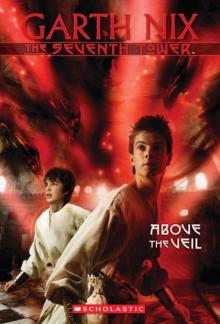 Above the Veil
Above the Veil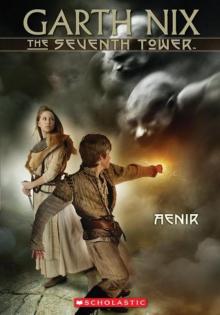 Aenir
Aenir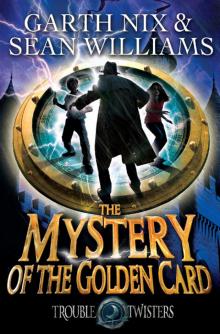 Mystery of the Golden Card
Mystery of the Golden Card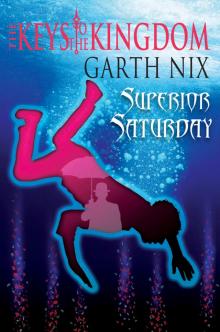 Superior Saturday
Superior Saturday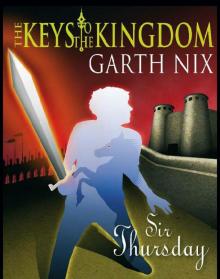 Sir Thursday
Sir Thursday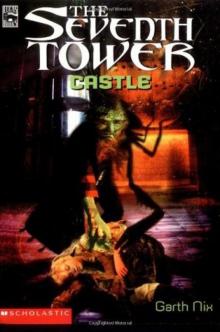 Castle
Castle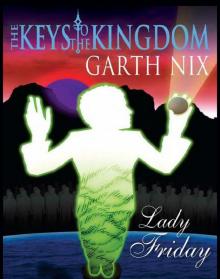 Lady Friday
Lady Friday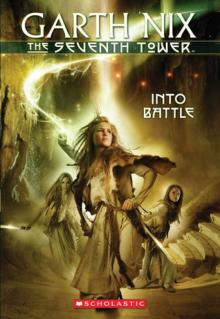 Into Battle
Into Battle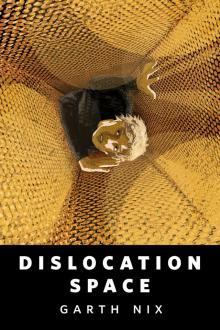 Dislocation Space
Dislocation Space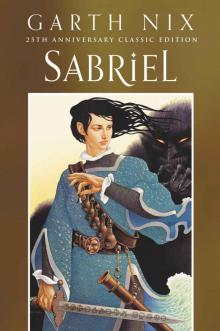 Sabriel (Old Kingdom Book 1)
Sabriel (Old Kingdom Book 1)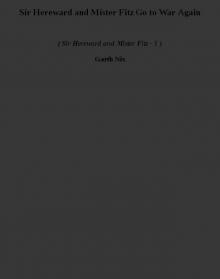 Sir Hereward and Mister Fitz Go to War Again shamf-1
Sir Hereward and Mister Fitz Go to War Again shamf-1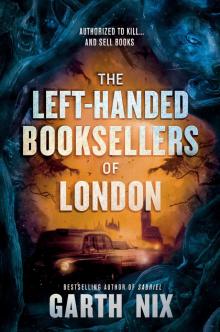 The Left-Handed Booksellers of London
The Left-Handed Booksellers of London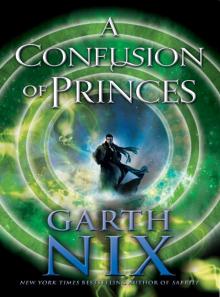 Novel - A Confusion of Princes
Novel - A Confusion of Princes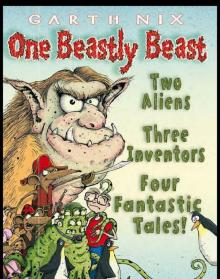 One Beastly Beast
One Beastly Beast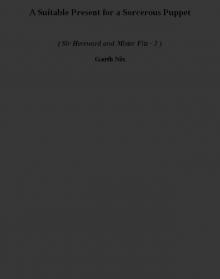 A Suitable Present for a Sorcerous Puppet shamf-3
A Suitable Present for a Sorcerous Puppet shamf-3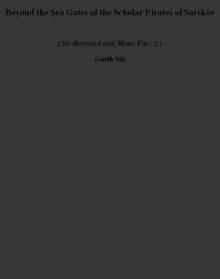 Beyond the Sea Gates of the Scholar Pirates of Sarsköe shamf-2
Beyond the Sea Gates of the Scholar Pirates of Sarsköe shamf-2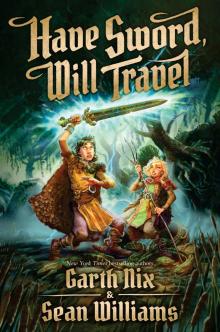 Have Sword, Will Travel
Have Sword, Will Travel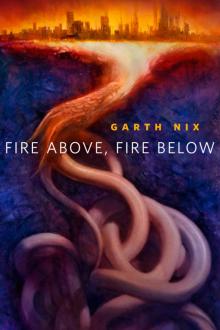 Fire Above, Fire Below
Fire Above, Fire Below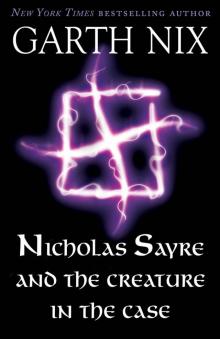 Nicholas Sayre and the Creature in the Case
Nicholas Sayre and the Creature in the Case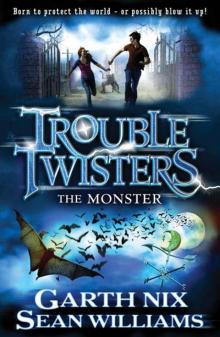 The Monster (Troubletwisters)
The Monster (Troubletwisters)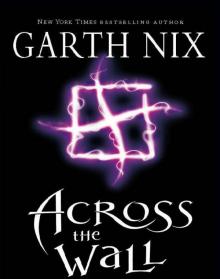 Across the Wall
Across the Wall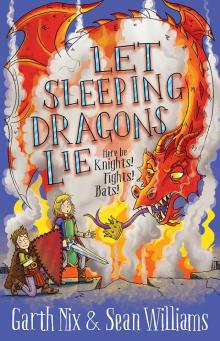 Let Sleeping Dragons Lie
Let Sleeping Dragons Lie![[Abhorsen 03a] - Across the Wall Read online](http://i1.bookreadfree.com/i2/04/12/abhorsen_03a_-_across_the_wall_preview.jpg) [Abhorsen 03a] - Across the Wall
[Abhorsen 03a] - Across the Wall